English-language yoga classes in Tokyo
Where to get into a meditative mood
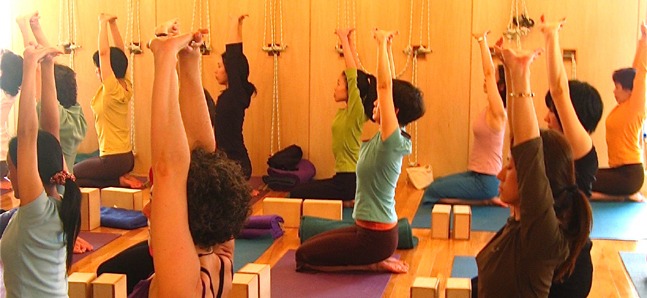
Courtesy of Shizen Yoga
Posted: Wed Apr 08 2015
Tokyo is home to some of the most active and long-running yoga establishments in East Asia, and with a dedicated community of practitioners catering to both the home-grown and international communities, the city offers a wide range of opportunities for enthusiasts. Here are some of our picks for studios that not only offer a great way to introduce yourself to yoga, but will also help you make friends in the metropolis.
YogaJaya
YogaJaya has a small but appealing studio above a surf fashion shop on a residential Ebisu backstreet. Like many yoga schools, the founders have adapted existing yoga forms to create some variations that are uniquely theirs, but anyone who has already practised vinyasa styles of yoga will find much that is familiar: sequences of postures which stretch and strengthen, and challenge your balance and fluidity of movement. The timetable has classes throughout the day, starting at 6.50am and finishing mid-evening.
As is the convention in many schools of yoga, classes are graded: Level 1 (suitable for beginners); Level 2 (intermediate); Level 3 (for more experienced practioners). YogaJaya also, very unusually, has what they call a ‘Level 4’ - possibly a homage to the movie Spinal Tap, where the rock band had a volume control that goes to 11. Walk-ins are welcome, but don’t do what we did and show up at a Level 3 class as a newcomer – you’ll be asked to leave until you’ve done a Level 1 and 2 class, regardless of your existing experience.
Most of the teachers are Japanese, and are invariably charming and professional, with good spoken English. Classes are taught dual-language, so even with no Japanese, you’ll quickly learn your hidari (left) from migi (right). We found the instructions consistently clear and the classes well-paced. Facilities are simple but adequate: no showers, change behind a curtain. It’s little wonder that YogaJaya is one of the most frequently recommended yoga schools for foreigners visiting Tokyo. Fellow students tend to be yoga regulars, typically (but not always) in the 30-40 age group.
The first trial class costs a mere ¥1,000; subsequent drop-in classes cost ¥2.500 each. Five classes in the first month cost ¥3,000.
Address: 2F, 1-25-11 Ebisu-Nishi, Shibuya
Telephone: 03 5784 3622
Website: www.yogajaya.com/en/home.html
Be Yoga
Found in smart Hiroo with its many embassies and foreign language schools, Be Yoga caters well to the market for slightly older yogi; in many classes we attended, 40-years-plus was the median age. The timing of classes gives another clue to the clientele: many classes don’t start until a spouse is off to work, or the kids are in school. Don’t expect this to be yoga for softies though. Even the beginner-level classes require good flexibility and some stamina, and the difficulty ramps up as you progress through level two to level three. Postures tend to be slow with emphasis on correct alignment, using straps and blocks as required; in the less busy classes you might get a lot of personal adjustments made.
The two studios are among the smartest and best-kept we’ve seen, spotless even by Japanese standards, and light-filled from full-length windows. The teachers of the English language classes are engaging and likeable foreigners; instructions are not given in Japanese. Based on standard hatha yoga postures, the level 1 classes should present little difficulty to anyone who has done a few yoga classes before. Don’t show up at one of the Japanese language classes expecting to stroll in though; we were turned away because our Japanese wasn’t good enough.
The studio offers one-time drop in rates; the first class costs ¥2,000, follow-up drop in classes cost ¥3,200; a one-month unlimited pass costs ¥21,000. As at many of the better yoga schools, teaching training is also on the calendar a few times a year.
Address: 4F, 5-10-26 Minami-Azabu, Minato
Telephone: 03 6277 0177
Website: www.beyogajapan.com/home/
Bikram Yoga
Like walking into a McDonald’s, you know exactly what to expect with Bikram Yoga: the same classes anywhere in the world, with virtually no deviation. It’s a big international brand, the creation of a charismatic and controversial yogi, Bikram Choudhury, now based in California. If you’ve not done a Bikram class before, you can expect a heated and humid room (kept at 40 degrees C), so you can leave the anklewarmers and sweatshirts outside the studio; most men wear no shirts and the women’s outfits can be skimpy.
Yoga in a hot environment can be challenging; bring water to drink. Many people find the heat helps flexibility and improves postures, with no warm-up needed. In the Aoyama branch of the seven studios in Tokyo, two classes per week are taught in English by a Japanese teacher using a face microphone. The room has no natural light but the walls are covered in mirrors like a pimp’s pleasure palace. This does actually help you see your asanas and correct where required.
Bikram’s sequence of 26 postures is copyrighted by him in the US, but this hasn’t stopped hundreds of other yoga schools cottoning onto a good idea and creating their own styles of yoga in hot rooms. The copyright explains why in some schools, postures are referred to as a ‘Bikram-style triangle’, never a ‘Bikram triangle’.
The facilities at the Aoyama branch are exemplary, with much-needed showers and hairdryers; it’s all very clean. The atmosphere is more like a big corporate gym than some smaller studios, but is none the worse for it. There’s a beauty salon on the same premises. The first three classes cost ¥3,240 for the three, and you must use the voucher within a fortnight; prices ramp up quickly after that.
Address: B1F, 6-2-2 Minami-Aoyama, Minato
Telephone: 03 3409 6661
Website www.bikram.jp/minamiaoyama
Other yoga studios
The following studios are also worth trying out, and were excellent when we last visited them a few years ago.
Shizen
Especially notable for catering to pregnant women and those looking for post-natal yoga, Kichijoji's Shizen offers one-time drop-in rates as well as multiple-time passes and family memberships to encourage families to try yoga together. Mats are available for use free of charge.
Address: Entopia Kichijoji #201, 2-5-9 Kichijoji-Minamicho, Musashino
Telephone: 090 3814 4488
Website: shizenyoga.com/e/
International Yoga Centre (IYC)
Multiple locations in Tokyo, including Ogikubo, Jimbocho and Kudanshita. Classes with English-speaking instructors are available at most studios. YC focuses on Ashtanga yoga, a dynamic flowing style.
Ogikubo Studio
Address: 5-30-6 Ogikubo, Suginami
Telephone: 03 5397 2741
Website: www.iyc.jp/en/
Japanese-language websites
If you can read Japanese – or have an interested friend who can – this website is helpful for the sheer number of listings: www.yogaroom.jp.
On it you can search for specific styles of yoga, for example:
Tweets
- About Us |
- Work for Time Out |
- Send us info |
- Advertising |
- Mobile edition |
- Terms & Conditions |
- Privacy policy |
- Contact Us
Copyright © 2014 Time Out Tokyo










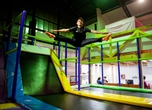
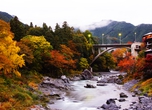
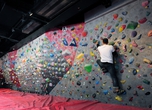
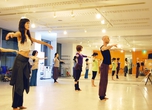
Add your comment